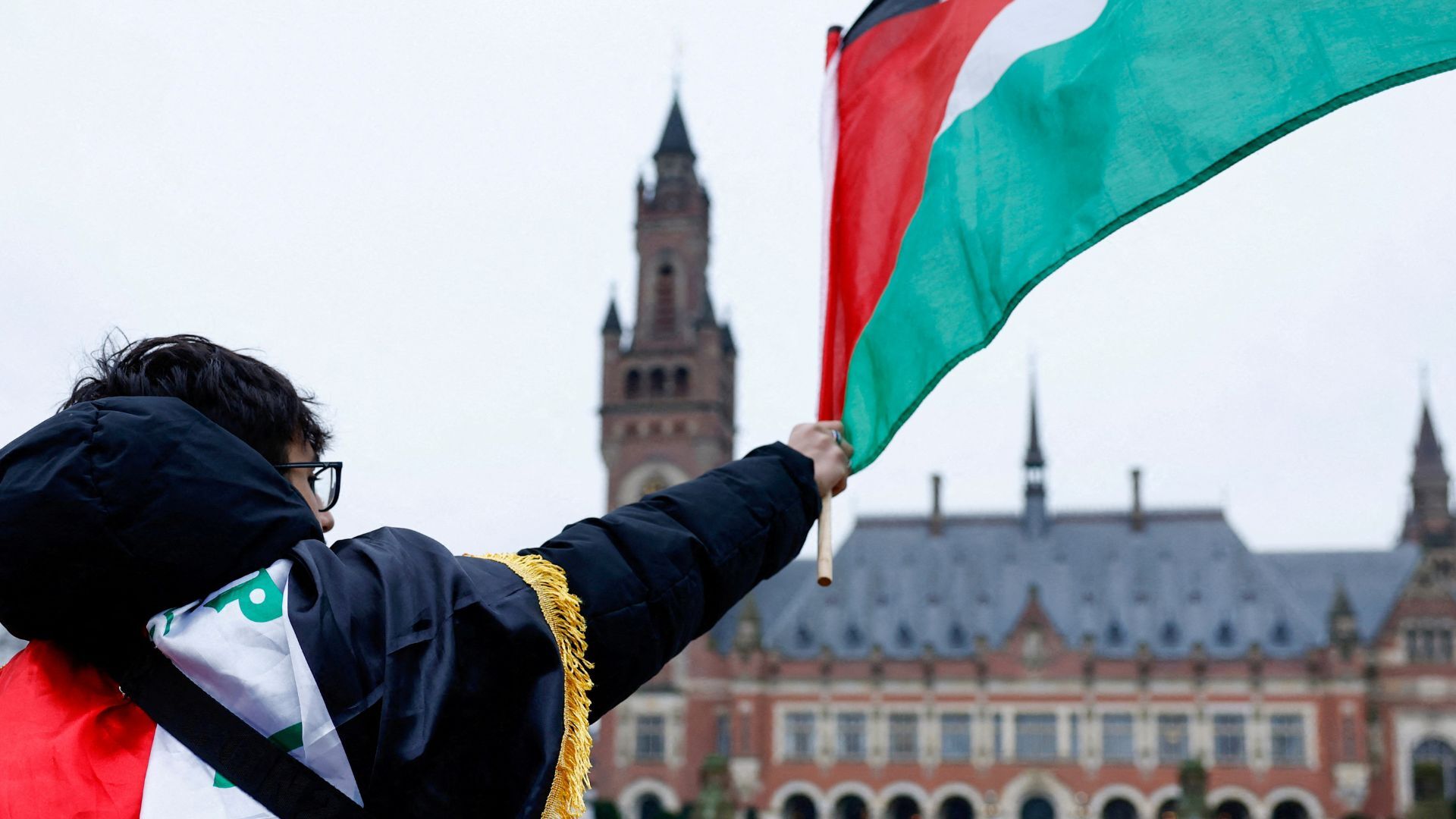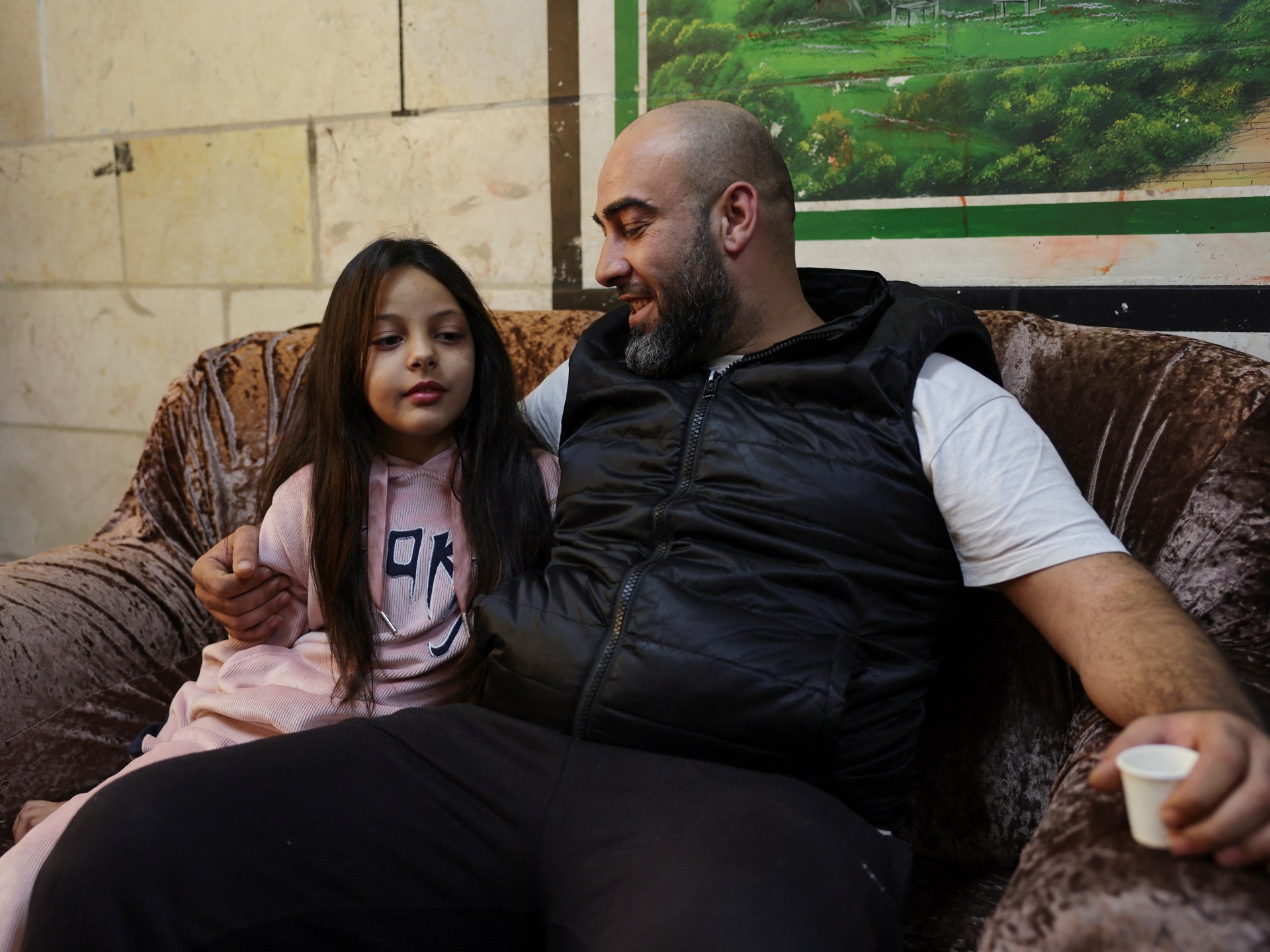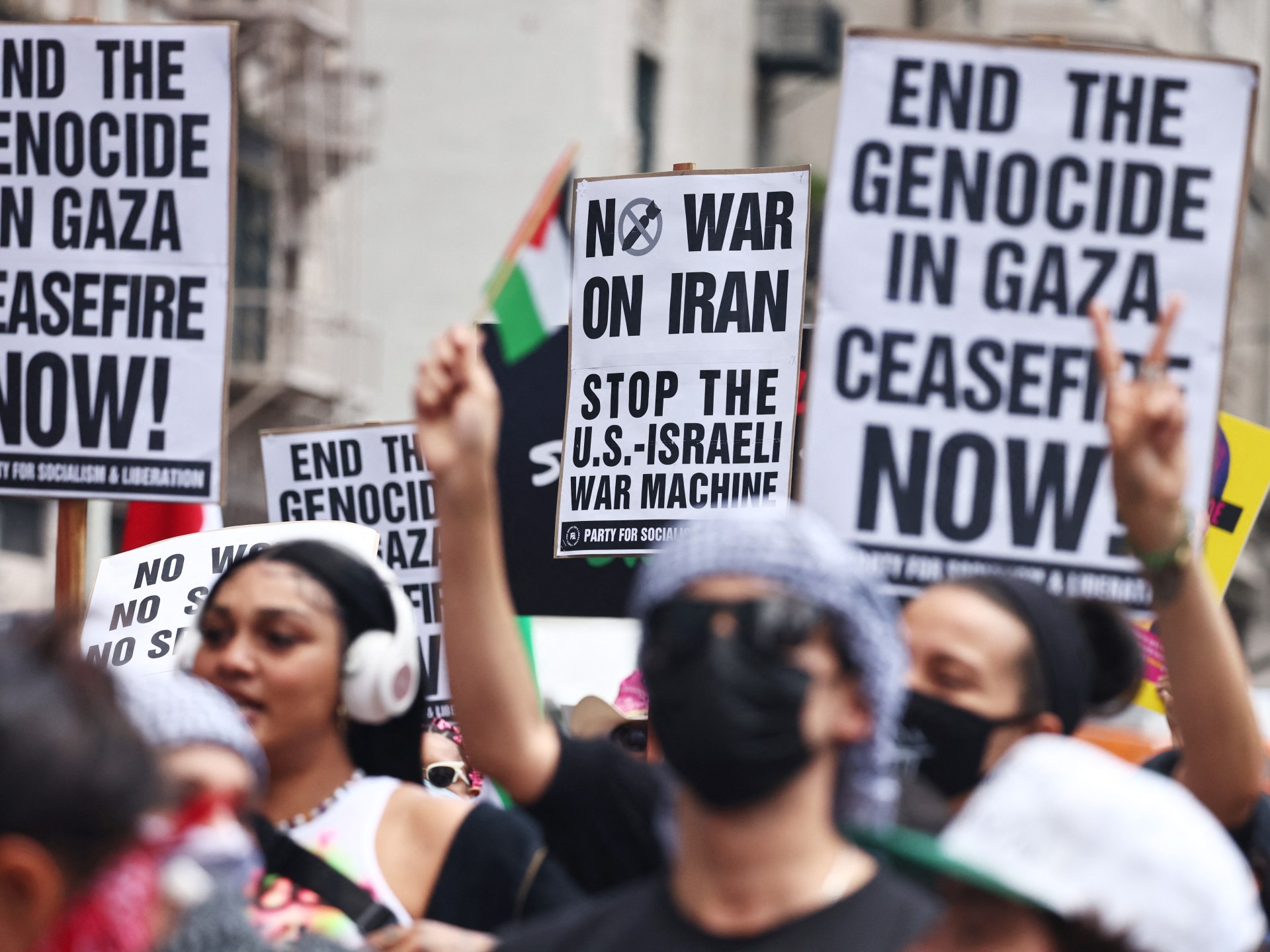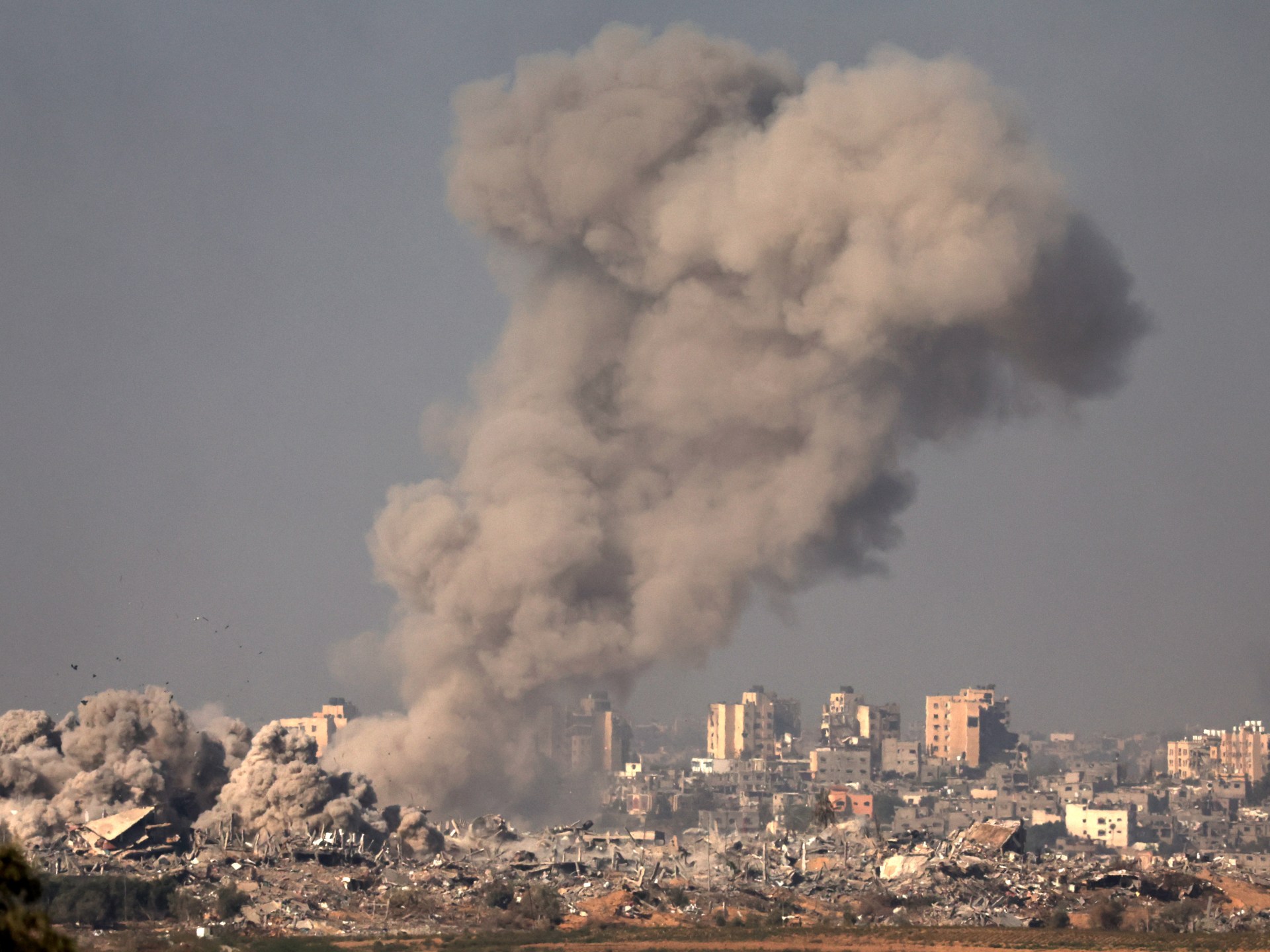Netanyahu under pressure from protests to freeze judicial reform bill
As calls for Netanyahu to stand down came from across the government, business community and opposition, including from Israeli President Isaac Herzog and Netanyahu’s own longtime lawyer, local media reported he would make a public statement Monday morning.
An official in Netanyahu’s Likud party who spoke on the condition of anonymity due to ongoing negotiations said that earlier Monday morning, the prime minister was ready to bow to pressure and halt the overhaul. Other Likud officials suggested that the move might be frozen at least until the Passover holiday and parliamentary recess next month, Israeli media reported. But the announcement was postponed amid reports that the prime minister had entered emergency consultations with his coalition partners.
Justice Minister Yariv Levin, the author of the initiative, said in a statement Monday afternoon that he would abide by any decision made by Netanyahu, “knowing that the situation … may immediately lead to the fall of the government and the collapse of the Likud.”
One of Netanyahu’s far-right allies, Security Minister Itamar Ben-Gvir, warned the prime minister by tweet not to “surrender to anarchy.” Netanyahu’s government holds a four-seat majority in the Knesset, Israel’s parliament, and Ben-Gvir’s Jewish Power party could bring down the government and force new elections if he pulled out of the coalition.
By midday, tens of thousands of protesters had packed central Jerusalem, flooding the area around the Knesset, the prime minister’s office, and the Supreme Court with a sea of Israeli flags and a cacophony of drums, horns and chants.
The street leading from the central rail station disgorged a river of protesters as packed trains, some of them standing room only, delivered Israelis from around the country to Jerusalem. The atmosphere was thick with a sense of impending crisis, or perhaps victory, as many of the demonstrators hugged and took selfies to mark the moment.
People alternated between chanting, slogans and checking phones, aware that perhaps just meters away, in this center of national government, the deliberations that could determine Israel’s next phase were unfolding.
“This is our independence day, for sure we are going to prevail,” said Talia Gorodess, a researcher from the town of Givatayim wearing face paint and carrying a snare drum. “The coalition is breaking apart. There is too much resistance.”
There have been fears of violent clashes, however, as Netanyahu allies called for their own supporters to also hit the streets.
“The elections will not be stolen!” tweeted Likud Knesset member Simcha Rothman, a key architect of the plan. “The people demand a radical overhaul of the justice system.”
One far-right group known for violence, a Jerusalem soccer fan club known as “La Familia,” said it would travel to the center of anti-coalition protests in Tel Aviv.
Every hour brought announcement of new strikes and work stoppages.
Israel’s main doctors union said its members would suspend non-emergency health-care services. The country’s largest shopping centers closed across the country, and fast-food giant McDonald’s said its stores would begin closing all branches starting at 12 p.m.
The spreading chaos came the morning after Netanyahu fired his defense minister, the first member of his cabinet to break with the coalition and call for a halt to the judicial legislation. The nighttime dismissal rocked a country already in turmoil, ratcheting up the backlash to an excruciating pitch.
Within minutes, protesters rushed into streets around the country, vowing to escalate demonstrations and public strikes until the legislative drive is frozen. Police clashed with protesters at several sites, using water cannons, cavalry and other unusually aggressive tactics to push back thousands of demonstrators who blocked Ayalon Highway and who massed outside Netanyahu’s Jerusalem residence.
Israel’s consul general in New York resigned in a tweet, and Herzog, the ceremonial president, pleaded with the prime minister and the coalition to stop their legislative push with the nation on the edge of catastrophe.
“The security, the economy, the society, everything is threatened,” Herzog said in a statement. “The eyes of all the people of Israel are turned to you.”
Netanyahu’s lawyer and close confident, Boaz Ben Zur, informed the prime minister that he would not continue to represent him in his corruption trial, Israeli media reported Monday morning.
Hard-liners in Netanyahu’s coalition — which includes ultra-Orthodox and ultranationalist settler parties — have continued to push the legislation even as opposition has swelled. On Monday, hours before Netanyahu spoke, a parliamentary committee passed a key element of the plan, a bill that would give the coalition greater control over the selection of judges.
“We don’t need to destroy the country,” opposition leader Yair Lapid said at the start of his party meeting in the Knesset on Monday morning, in which he called on Netanyahu to stop the legislation and enter negotiations under the supervision of the president.
The coalition’s judicial overhaul package would give it greater power to handpick judges, including those presiding over Netanyahu’s corruption trial, in which he is charged in three separate cases and faces potential jail time. Proponents say the changes — long sought by Israel’s growing right wing — are needed because the courts have become too powerful at the expense of elected officials and are hopelessly biased toward the country’s left-wing elite.
Opponents say the moves are an attempt to eliminate one of the only checks on the coalition’s power, a shift that would allow it to make radical changes to society and tilt the country toward authoritarianism.
The plan, announced without warning soon after Netanyahu’s new government took power at the end of December, forced the country to confront long-simmering questions over prioritizing its democratic character or its Jewish one.
Rubin reported from Tel Aviv.
Check out our Latest News and Follow us at Facebook
Original Source







